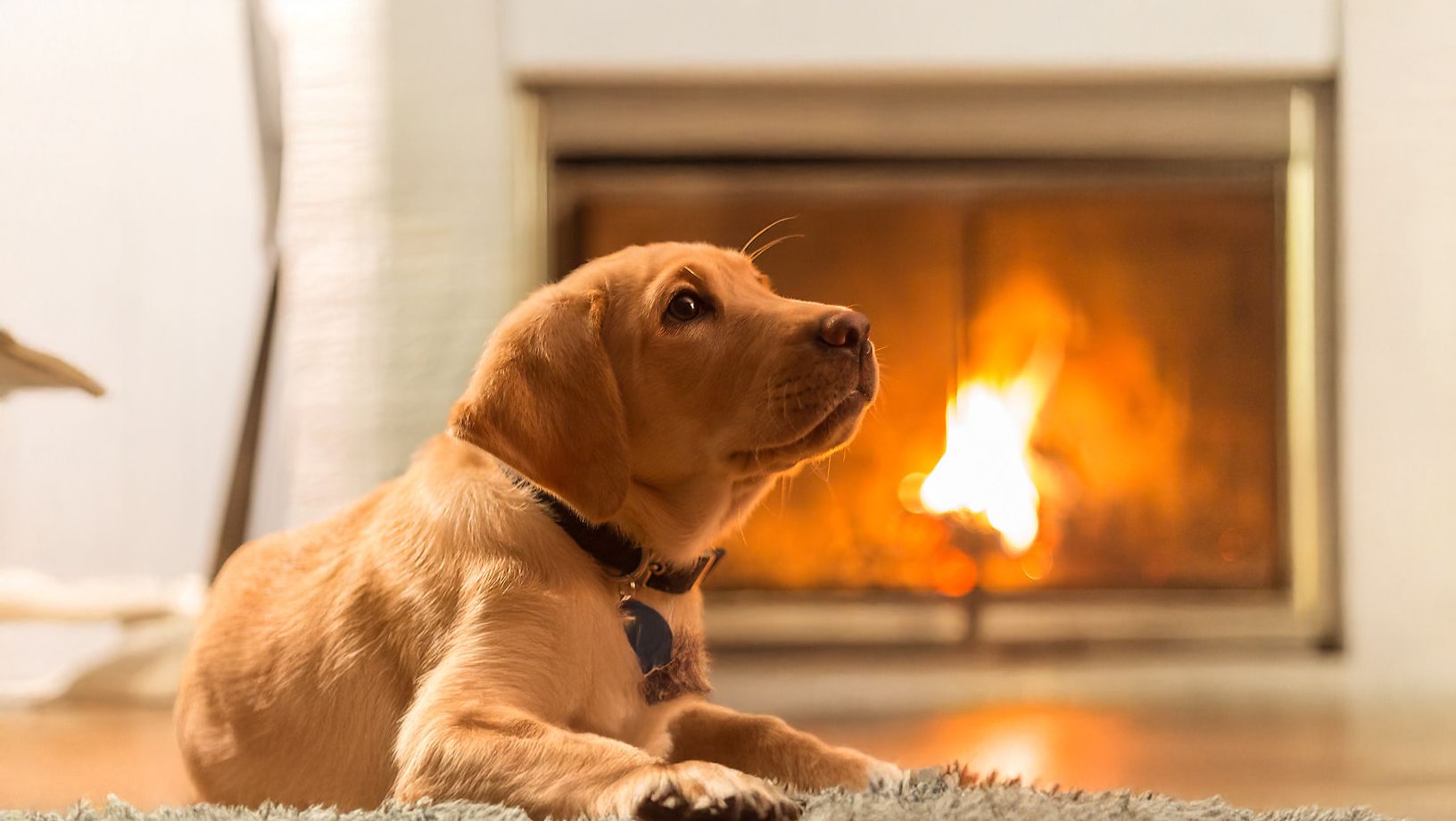Pet Wildfire Safety: Tips for Protecting Your Pet During a Wildfire

In this Article
No one wants to think about the possibility of a wildfire near their home. Unfortunately, certain areas are prone to wildfires that can strike quickly and with little warning. When this happens, the best way for you and your pet to remain safe is to be prepared. Just like humans, pets are alarmed by wildfire and sudden change. Having the correct dog supplies is critical for practicing pet wildfire safety.
If you have time to prepare for a wildfire and a safe pet fire escape, the first step is to bring your pet indoors. Like humans, pets will have trouble breathing with fire and heavy smoke. As your family makes plans to evacuate, check for the right pet supplies so your furry friend is safe.
Here are the Supplies You Need for Pet Wildfire Safety
You may not have time to collect the right things for your dog with short notice, so make a pet preparedness kit beforehand in case of an emergency. Not sure what supplies to include? Here’s where to start:
- Identification - Make sure your pet has an ID tag on their collar that includes your cell phone number, a microchip and/or a GPS enabled collar. Also, gather your pet’s medical records and your vet’s contact information. In case of emergency, carry a recent photo of your pup with you.
- Transportation Materials - For when you and your furry friend travel toward safety, have a reliable dog carrier ready where your pup can comfortably rest. Make this space cozier with a dog blanket or an extra toy. Remember to also have a reliable dog leash or dog harness in case you have to walk, as this will ensure your pet stays close by. If you have any backup dog crate supplies or an extra dog leash that can easily fit, pack that too.
- Food and Water - Prepare for your pet’s wildfire safety with a week’s supply of food and water. Grab a portable dog food feeder and water bowl that’s easy to transport so your pet has a designated spot to eat. It may also help to write down your pet’s eating schedule to stay consistent. When it comes time to use the bathroom after dinner, have some dog waste bags to pick up after potty breaks.
- Medications - If your pet takes medication regularly, don’t forget to pack it. Grab items like calming spray, calming treats or other dog wellness items that your pet enjoys. Successfully navigating your pet to safety during a fire isn’t easy, so anything you can do to help calm them is a good idea.
- Extra Supplies - Pack a few additional pet supplies during your fire escape if you have the space. Supplies like flea/tick preventation, puppy pads and an extra toy or two may be helpful in the future.
Finding Safe Housing
Once you’ve successfully followed the advice of local authorities on how and where to evacuate, the next step is to find safe housing. You may discover that some emergency relief shelters don’t accept pets due to public health concerns. There are other temporary housing and boarding options for your furry friends if this happens like a pet hotel.
If you have a service animal or prefer not to be separated from your pet, there are pet-friendly hotels in most areas that can be good alternatives to boarding your pup.
After the Wildfire
Once you and your furry friend are safe after following these tips for pet wildfire safety, proceed to familiar territory with caution. Pets may become confused if familiar smells and sights look different due to the wildfire. Look for signs of smoldering debris, loose power lines and other potential hazards to help ensure your pet’s safety. Never enter an area that has not been cleared for safe entry.
You should also consult with your veterinarian to make sure your pet’s lungs were not affected by the wildfire. Your vet is the best resource to get your pup the care they may need.
Information in this article isn't intended to diagnose, treat or cure your pet and isn't a substitute for veterinary care provided by a licensed veterinarian. For any medical or health-related advice concerning the care and treatment of your pet, contact your veterinarian.

